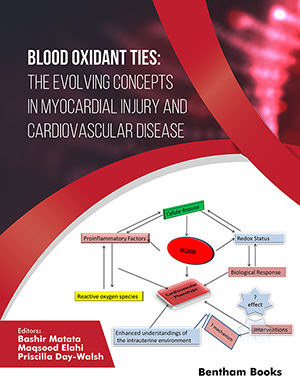Abstract
Antiplatelet therapy plays an important role in the treatment of patients suffering from acute coronary syndrome (ACS) or undergoing percutaneous coronary intervention (PCI) in order to prevent atherothrombotic events and restenosis or ischemic reocclusion, respectively. Moreover, stent implantation is often performed along with PCI to ensure that the arteries remain open. However, stent thrombosis ST is a possible complication which can occur up to about one year after the procedure. Therefore, it is standard to treat patients with a dual antiplatelet regime whereby aspirin is combined with either clopidogrel, prasugrel or ticagrelor. This review summarizes the characteristics of these P2Y12 antagonists and evaluates the current and future clinical guidelines for antiplatelet therapy in the setting of PCI with or without stenting.
Keywords: Clopidogrel, drug-eluting stent, prasugre, stent thrombosis, ticagrelor.
Cardiovascular & Hematological Disorders-Drug Targets
Title:Recent Developments in Antiplatelet Therapy after Percutaneus Coronary Intervention
Volume: 14 Issue: 3
Author(s): Mustafa Yildiz, Banu Sahin Yildiz, Mustafa Ozan Gursoy and Ibrahim Akin
Affiliation:
Keywords: Clopidogrel, drug-eluting stent, prasugre, stent thrombosis, ticagrelor.
Abstract: Antiplatelet therapy plays an important role in the treatment of patients suffering from acute coronary syndrome (ACS) or undergoing percutaneous coronary intervention (PCI) in order to prevent atherothrombotic events and restenosis or ischemic reocclusion, respectively. Moreover, stent implantation is often performed along with PCI to ensure that the arteries remain open. However, stent thrombosis ST is a possible complication which can occur up to about one year after the procedure. Therefore, it is standard to treat patients with a dual antiplatelet regime whereby aspirin is combined with either clopidogrel, prasugrel or ticagrelor. This review summarizes the characteristics of these P2Y12 antagonists and evaluates the current and future clinical guidelines for antiplatelet therapy in the setting of PCI with or without stenting.
Export Options
About this article
Cite this article as:
Yildiz Mustafa, Yildiz Sahin Banu, Gursoy Ozan Mustafa and Akin Ibrahim, Recent Developments in Antiplatelet Therapy after Percutaneus Coronary Intervention, Cardiovascular & Hematological Disorders-Drug Targets 2014; 14 (3) . https://dx.doi.org/10.2174/1871529X14666140823142031
| DOI https://dx.doi.org/10.2174/1871529X14666140823142031 |
Print ISSN 1871-529X |
| Publisher Name Bentham Science Publisher |
Online ISSN 2212-4063 |
 49
49
- Author Guidelines
- Graphical Abstracts
- Fabricating and Stating False Information
- Research Misconduct
- Post Publication Discussions and Corrections
- Publishing Ethics and Rectitude
- Increase Visibility of Your Article
- Archiving Policies
- Peer Review Workflow
- Order Your Article Before Print
- Promote Your Article
- Manuscript Transfer Facility
- Editorial Policies
- Allegations from Whistleblowers
- Announcements
Related Articles
-
A Novel and Significant Method for Antioxidant Activity Utilizing Microtitre-plate (Resazurin Reducing Power Assay)
Current Chemical Biology MicroRNAs as Biomarkers in Hypertrophic Cardiomyopathy: Current State of the Art
Current Medicinal Chemistry Cardioprotective effects of Aronia melanocarpa anthocynanins. From laboratory experiments to clinical practice.
Current Pharmaceutical Design Identification of Molecular Targets Associated with Ethanol Toxicity and Implications in Drug Development
Current Pharmaceutical Design An Overview on COVID-19 and its Effect on Cardiovascular Diseases
Endocrine, Metabolic & Immune Disorders - Drug Targets “Seeing is Believing”: Perspectives of Applying Imaging Technology in Discovery Toxicology
Combinatorial Chemistry & High Throughput Screening The Role of Endogenous H2S in Cardiovascular Physiology
Current Pharmaceutical Biotechnology Regulation of Platelet Function by Acetylation/Deacetylation Mechanisms
Current Medicinal Chemistry Neurotoxicity by Synthetic Androgen Steroids: Oxidative Stress, Apoptosis, and Neuropathology: A Review
Current Neuropharmacology Hydroxysteroid Dehydrogenase (17β -HSD3, 17β-HSD5, and 3α-HSD3) Inhibitors:Extragonadal Regulation of Intracellular Sex Steroid Hormone Levels
Recent Patents on Endocrine, Metabolic & Immune Drug Discovery Targeted Drug Delivery for Cardiovascular and Cerebrovascular Diseases
Current Drug Targets Metabolic Effects of a Diet with Inulin-Enriched Pasta in Healthy Young Volunteers
Current Pharmaceutical Design The Role of Aryl Hydrocarbon Receptor-Regulated Cytochrome P450 Enzymes in Glioma
Current Pharmaceutical Design Lipid-based Self-Adjuvanting Vaccines
Current Drug Delivery Neuroimmunomodulation and Aging: A Role for Transferrin and the Hypothalamus/Thymus Axis
Current Aging Science Current Drugs and Nutraceuticals for the Treatment of Patients with Dyslipidemias
Current Pharmaceutical Design The Prevalence, Morbidities, and Treatments of Insomnia
CNS & Neurological Disorders - Drug Targets Nanoparticles: A Promising Therapeutic Approach in Atherosclerosis
Current Drug Delivery Contrast Medium Induced Nephropathy: New Insights into Prevention and Risk Management
Cardiovascular & Hematological Agents in Medicinal Chemistry Recent Advances in Health Promoting Effect of Dietary Polyphenols
Current Nutrition & Food Science























